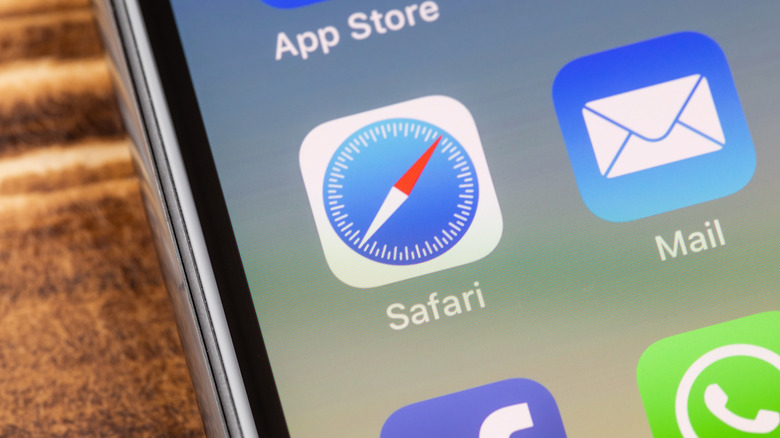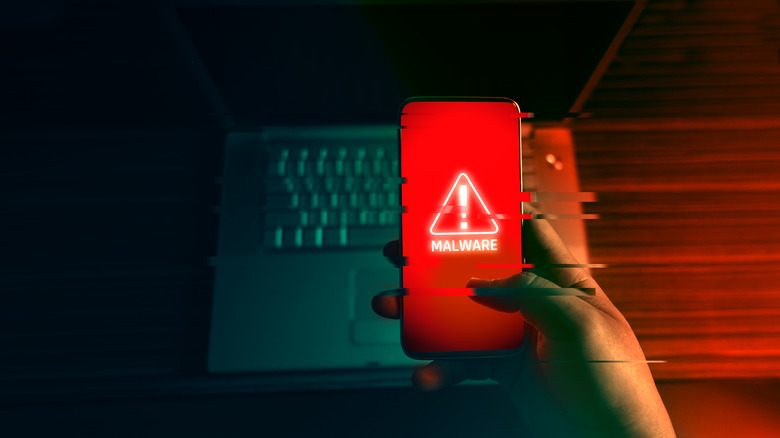Can Your iPhone Get A Virus From Safari? Here's What We Know
You may have heard before that it's impossible to get a virus on an iPhone. However, this is false and the product of tricky marketing from Apple, which the company has rescinded. But the myth persists, leading users to browse the internet unprotected. It may seem like the iPhone's main browser, Safari, has no risk of giving your phone a virus. However, no matter the method of browsing the internet, there's always a chance it could happen.
Although it's incorrect to say that the iPhone can't get a virus, it is true that iOS devices are generally more secure. The likelihood of getting viruses is rare, but it definitely is possible and depends greatly on how one is using the iPhone. Safe internet browsing practices still apply to Safari, as there can be malicious or unsecure websites that could lead to a virus on your phone. Suspicious websites may prompt downloads to your iPhone, or try and get you to click on fishy looking ads. Like anything else, if it seems too good to be true, don't trust it. This applies even to iPhones when using Safari.
Viruses themselves don't come from using Safari, but instead the websites you visit on the browser or other iOS browsers like Chrome. As long as you are using the internet safely, you shouldn't come across any issues.
How do you know if you got a virus?
If you're wondering how to tell if your iPhone has a virus, there are some signs to look out for, as mentioned on Cyber Talk. If you notice any of these issues, restoring your iPhone back to factory settings can remove the virus. If you're still noticing issues, your best bet is to contact Apple or bring your iPhone to an Apple store.
A major sign that your iPhone has a virus is if excessive data is being used. If you're not streaming or doing anything else that heavily uses data, but much more than your normal average is being used, it's might be a sign that a virus is causing trouble behind the scenes.
Another signifier is finding apps on your iPhone you never downloaded. This can especially happen with suspicious websites on Safari, which may have downloaded the software to your iPhone under a guise. This is less likely to happen because of the safety nets employed on iOS, but if you have a jailbroken iPhone or accept downloads from unsecure websites, there's more risk.
Furthermore, if you notice your iPhone is lagging, using more battery power than usual, or apps aren't working correctly, this could be another indicator that your iPhone has been compromised. Again, factory resetting your iPhone is best if you believe you do have a virus. Afterwards, you can then restore your iPhone from a back up.

